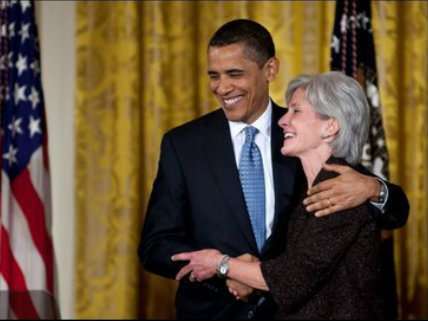CBO: Federal Government Will Spend More As a Result of Obamacare Delay

When the Obama administration announced that Obamacare's employer mandate and income verification requirements would be delayed by a year, one of the many questions left unanswered was: How much will this add to the deficit?
Yesterday, the Congressional Budget Office provided an answer: about $12 billion. The delay will reduce projected federal revenue by $9 billion, and increase federal spending by about $3 billion.
Federal revenue is expected go down next year because employers who don't offer qualifying coverage won't have to pay a tax penalty. Federal spending will go up because CBO projects that a half million more people will be getting subsidized coverage through the law's exchanges and its Medicaid expansion.
But just because the delay will mean that more people get publicly subsidized coverage does not mean that more people will get coverage overall. The CBO now projects that about a million fewer people will end up with health coverage next year as a result of the delays.
In the broader scheme of the federal budget, $12 billion is not a huge amount of money. But the higher debt levels do eat into the law's projected deficit reduction, which has already been significantly reduced thanks to other changes to the law. What's more, these projections only reflect a one-year delay. And as CBO points out, it's the law's first year, when the law is still getting up and running — which means that these incentive changes actually have a smaller effect than they might later on. What if the anti-fraud provisions are never fully implemented? What if the employer mandate is delayed further, or repealed entirely, as some supporters of the law have suggested? Presumably that would decrease the health law's projected deficit reduction even further, perhaps even eliminating it entirely.


Show Comments (12)